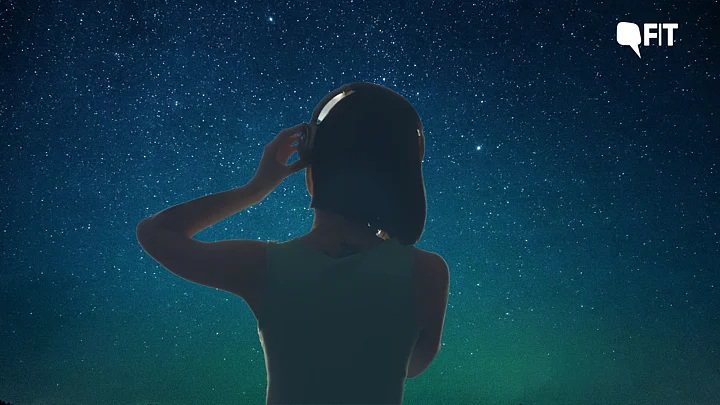"Sad songs are my comfort zone. They are the only thing that can help me go to sleep or come to terms with whatever goes on in my head."Verda Subzwari
Verda Subzwari, 25, a social media manager, has listened to Mustafa Zahid's Tera Mera Rishta Purana and Toh Phir Aao billions of times. But these songs never seem to bore her.
Rather, they take her back to a time when she was vulnerable and going through an intense heartbreak – reminding her that she still needs to process those emotions.
On the other hand, Pranay Roy, 22, a journalist, seems to fall back on sad music when they need to put something happening in their life into perspective.
For both of them, it's almost like sad music is their companion on good days and bad – a loyal, reliable friend who's seen them through every phase of their life, commemorating the end of a relationship, fights in a friendship, or even just wallowing after a bad day at work.
Many a times, these songs also stand the test of time. Subzwari has been listening to Mustafa Zahid's songs since she was 16. Aastha (name changed), 23, a Delhi resident, keeps going back to Waqt Ki Baatein by Dreamnote. Roy has been obsessed with Damien Rice's songs that are almost as old as them.
But why do we love listening to sad songs? What makes our bond with Arijit Singh, AR Rahman, or Javed Ali so secure, long-lasting, and almost sacred?
A Safety Blanket Or A Hug: What Sad Music Feels Like
There are several reasons that people listen to sad music.
Dr Kersi Chavda, Psychiatry Consultant at Mahim's PD Hinduja Hospital, says,
“Listening to sad, soulful music makes a person feel like they are not alone and other people also experience such emotions and deal with it in their own way.”
Roy concurs. For them, music that is sad often makes them feel heard, provides a sense of comfort and support, and, as Dr Chavda said, assures them that they are not alone.
Subzwari feels the same. She says, "(Sad songs) make me feel like they're talking to me and telling my story. It's my form of therapy."
For Aastha, they're like a palate cleanser for her soul.
"Sad music makes me feel like the main character when I am sad for real. Also, they are easier to cry to. But they also remind me of people/situations that made me sad and how I got over it."
A 2019 study, titled Why Do Depressed People Prefer Sad Music?, had suggested that sad music makes people struggling with mental health issues feel better.
It's also somewhat of a trip down nostalgia lane, helping you acknowledge emotions you might have left unprocessed.
On some days though, the songs are so sad that they give Roy hope that he's better off. So, it's a win-win situation.
But Sad Music Does Not Always Mean Life Is Sad
However, Roy firmly believes that listening to sad music does not always mean that you're sad.
"Sometimes it could just mean you have a flair for the dramatic. Sad music makes you feel like you're in a movie, it gives a hyper realistic background score to your narrative."Pranay Roy
Rujuta Thete, 24, a fact-checker, agrees. Since she considers herself a sensitive human who likes to stay in touch with her emotions, she relies on sad music to help her do that and disengage with reality.
Even on days when she isn't particularly sad, or is rather jolly too. And she says this as someone whose current favourite song is literally called The Loneliest by Måneskin.
A 2017 study, titled An Integrative Review of the Enjoyment of Sadness Associated with Music, explains that some people “enjoy sadness portrayed in music and other arts.”
This is called the “paradox of pleasurable sadness” because while sad music does evoke melancholy, it can also trigger positive and “aesthetic emotions.”
The study also said that listening to sad music can bring about a sense of peace, nostalgia, and wonder, which can be “stabilising forces” for people.
Other studies have also shown that it can be a useful tool in adversity because it reminds us that we “possess a store of powerful memories that are deeply intertwined with our identity.”
But it’s not just our brain that gets wired based on the music we’re listening to. Dr Chavda explains to FIT that sad music pivots dopamine (the feel-good hormone) and prolactin (hormone associated with crying) in our body.
“High prolactin levels are associated with pleasurable music-induced sadness, whereas low prolactin concentrations are associated with unpleasant music-induced sadness.”
So even though one in every four people, or 25 percent, (as found in 2016 study titled Enjoying Sad Music: Paradox or Parallel Processes?) love listening to sad music, it's not a representation of what their true emotions at that moment are.
But that does kind of explain why we LOVE listening to sad music even though we might be feeling on top of the world.

